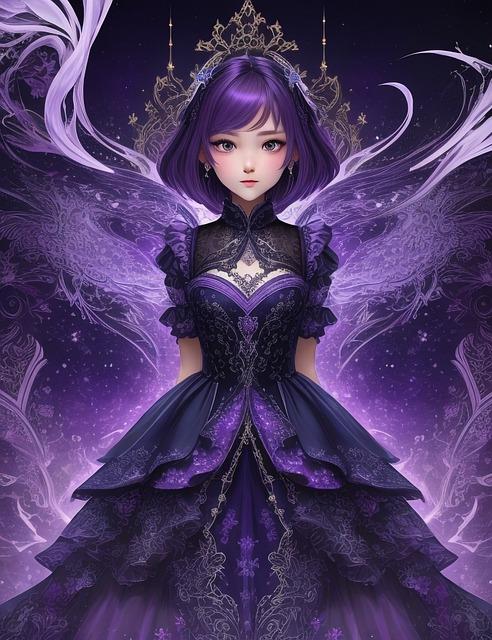Sexuality is a complex and multifaceted aspect of human existence that has been explored and depicted in various art forms throughout history. From ancient myths and religious texts to modern literature and film, sexual themes are often used to convey deeper messages and meanings. But what exactly do these symbols and themes represent? In this article, we will delve into the world of sexual symbolism, exploring the ways in which it is used to convey complex ideas and emotions. By unraveling the hidden meanings behind these themes, we can gain a deeper understanding of the human experience and the complexities of interpersonal relationships.
Uncovering the Depths of Sexual Themes in Literature
Many works of literature contain complex and nuanced exploration of sexual themes that offer layers of insight into human relationships and desires. Through careful analysis and deep reading, readers can uncover the hidden depths of these themes and gain a deeper understanding of the characters and their motivations. The exploration of sexual themes in literature often challenges societal norms and conventions, pushing boundaries and provoking thought.
Authors use a variety of techniques to convey sexual themes in their works, from subtle innuendos and symbolic imagery to explicit descriptions and scenes. These depictions serve to evoke emotions, spark discussions, and provide a window into the human experience. By delving into the complexities of sexual themes in literature, readers can engage with thought-provoking ideas and gain a richer appreciation for the power of storytelling.

Interpreting Symbolism in Sexual Imagery
When analyzing sexual imagery, it’s crucial to delve deep into the symbolism present within the visuals. Through careful interpretation, one can uncover layers of meaning that go beyond the surface appearance. In many cases, sexual imagery serves as a language of its own, conveying messages and emotions that may not be immediately apparent to the casual observer.
**Key Points to Consider When :**
– **Color:** Pay attention to the colors used in the imagery, as they can carry symbolic meanings related to passion, desire, or intimacy.
– **Positioning:** The way the subjects are positioned in relation to each other can signify power dynamics, emotional connections, and the nature of the relationship.
– **Objects:** Objects present in the imagery can hold symbolic significance, hinting at themes such as fertility, sensuality, or taboo desires.
Exploring the Cultural Significance of Sexual Themes
Sexual themes have long been a prominent aspect of culture, influencing art, literature, music, and even societal norms. In many cultures, sexuality plays a significant role in shaping identity, relationships, and traditions. By delving into the cultural significance of sexual themes, we can gain a deeper understanding of the complexities and nuances surrounding this universal aspect of human experience.
Exploring how different societies interpret and express sexuality can offer valuable insights into their values, beliefs, and attitudes towards gender, power dynamics, and intimacy. Through examining the role of sexual themes in various cultural contexts, we can appreciate the diversity and richness of human expression, and how these themes continue to shape and evolve our understanding of identity and relationships.

Understanding the Psychological Impact of Sexual Symbolism
Sexual symbolism has a profound impact on our psychology, shaping our perceptions, attitudes, and behaviors in subtle yet significant ways. When we encounter sexual symbols in media, art, or everyday objects, our brains automatically generate associations and emotions that may influence our thoughts and actions without us even realizing it. This can lead to a range of psychological effects, both positive and negative, that warrant closer examination.
Some key ways in which sexual symbolism can impact our psychology include:
- Activation of arousal: Sexual symbols can trigger feelings of arousal and desire, affecting our mood and decision-making processes.
- Formation of stereotypes: Exposure to sexual symbols can perpetuate stereotypes about gender, sexuality, and relationships, shaping our beliefs and attitudes towards others.
- Enhancement of self-image: Sexual symbols can influence our self-perception and self-esteem, leading to feelings of insecurity or empowerment depending on the context.

Analyzing the Power Dynamics in Sexual Imagery
When examining the power dynamics in sexual imagery, it is crucial to understand the various elements at play. One key aspect is the portrayal of gender roles, which often perpetuate stereotypes and reinforce societal norms. Images that depict women as passive objects for male pleasure can reinforce unequal power dynamics and contribute to the objectification of women.
Additionally, the framing and composition of sexual imagery play a significant role in determining power dynamics. The use of angles, lighting, and poses can influence the perceived power dynamic between individuals in the image. Furthermore, the context in which the imagery is presented also shapes how power dynamics are interpreted by the viewer. It is essential to critically analyze these elements to understand the impact of sexual imagery on societal perceptions of power and gender.

Decoding Hidden Messages in Sexual Themes
Sexual themes have long been used as a means of conveying hidden messages in various forms of art, literature, and media. These messages can range from subtle innuendos to deeper societal commentary. By decoding these hidden messages, we can gain a deeper understanding of the underlying themes and messages being conveyed.
One common approach to is to analyze symbolism and imagery. Oftentimes, certain objects, colors, or actions can carry deeper meanings that may not be immediately apparent. By examining these symbols in the context of the overall narrative or artwork, we can uncover the hidden messages that the creator is trying to communicate. Additionally, paying attention to character dynamics and interactions can also reveal underlying themes related to power dynamics, gender roles, and societal norms.
Tips for Enhancing your Understanding of Sexual Symbolism in Literature
When exploring sexual symbolism in literature, it is important to dig deep into the text and analyze the underlying meanings. Here are some tips to enhance your understanding:
First, pay attention to recurring motifs or imagery that may represent different aspects of sexuality. Look for symbols like flowers, animals, or colors that hold significant meaning. Additionally, consider the context in which these symbols appear and how they contribute to the overall theme of the piece. **Analysis of key scenes** where sexual symbolism is prominent can also provide valuable insights into the author’s intentions.
Frequently Asked Questions
Q: What exactly are sexual themes in literature and media?
A: Sexual themes refer to the depiction or exploration of sexuality, desire, intimacy, and relationships in various forms of artistic expression.
Q: Why do creators incorporate sexual themes into their work?
A: Sexual themes can be used to convey deeper emotions, explore human nature, challenge societal norms, or provoke thought and discussion among audiences.
Q: How can readers or viewers interpret sexual symbolism in a piece of art or literature?
A: They can analyze the context, imagery, language, and character dynamics to understand the symbolic meaning behind the sexual themes and their relevance to the overall narrative.
Q: Are sexual themes always explicit or graphic?
A: Not necessarily. Sexual themes can be subtle, nuanced, metaphorical, or allegorical, depending on the artist’s intention and the intended audience.
Q: Can sexual themes in media or literature be considered controversial?
A: Yes, sexual themes can be controversial due to cultural, religious, or moral sensitivities, as well as concerns about objectification, exploitation, or misrepresentation of sexuality. Sexual themes in literature carry deeper meanings that reflect human desires and emotions, shedding light on societal norms and taboos.


